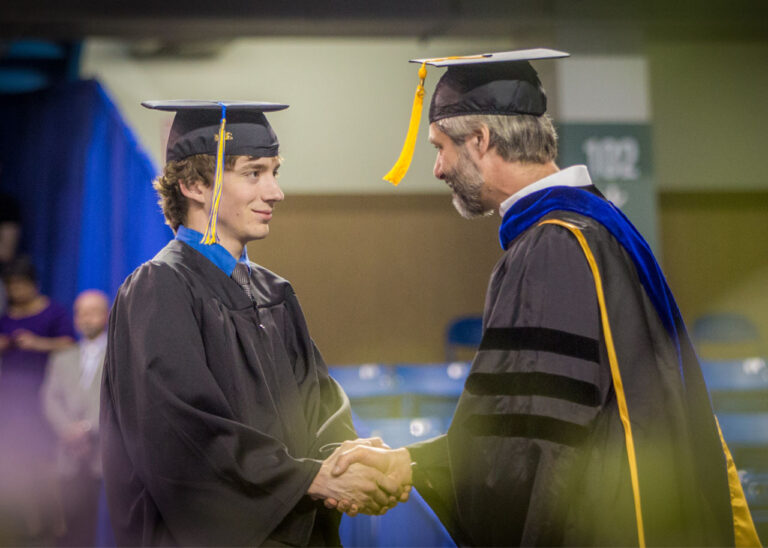
Instruction beyond the bounds of the semester
Use it or lose it. As it applies to mastery of course content and subject matter, many students get rusty over semester breaks, including the more than 12 weeks of summer. While this phenomenon is readily known to teachers in primary grades, many university instructors recognize that students will often need time to review subject matter from prerequisite courses even in their post-secondary academic programs.

This slippage is usually more profound with factual and procedural knowledge, but it can also be observed with conceptual knowledge [1]. Research and meta-analysis review of literature indicate that practice and application are the best ways to blunt this effect. Intersession programs can also provide an academic boost to students as well [2].
Here at UAF, we have our Summer semester as well as MAYmester and WINTERmester to round out the traditional academic courses that are offered in Fall and Spring. As de facto academic advisors to students in your courses, you might want to point your students towards these additional opportunities for learning.
Beyond the institutional processes involved in offering courses in particular semesters, individual instructors do have many ways to academically engage students before and after the official start dates of courses.
One of the easiest ways to accomplish this before the semester begins is merely having your course open (or partially open), before the first day. If you have any options for extra credit in your course, or forms of alternate assessment, you might consider providing incoming students with optional early reading lists or external practice problems.
As a member of a department you might engage in a conversation with colleagues about the creation of appropriate course bridging activities for your discipline, with the goal of preventing skill and knowledge degradation over long breaks.
One of the most effective ways that students can be trained in subject matter is to be directly involved in research. Consider what kinds of internships and field research opportunities are available from you or your department. Many students looking for off season employment could also benefit from being immersed in the workings of their future vocation.
Another beneficial resource on campus is the Undergraduate Research and Scholarly Activity (URSA) office. The URSA website, https://uaf.edu/ursa/, highlights current and upcoming employment in research activities for undergraduates. URSA also provides many grants that can directly fund properly mentored undergraduate research activities. The URSA staff and members of the faculty advisory board will be able to get you started if this is something you’d like to help your students get involved with.
References
[1] Cooper, H., Nye, B., Charlton, K., Lindsay, J., & Greathouse, S. (1996). The effects of summer vacation on achievement test scores: A narrative and meta-analytical review. Review of Educational Research, 66(3), 227-268
[2] Gándara, P., & Fish, J. (1994). Year-Round schooling as an avenue to major structural reform. Educational Evaluation and Policy Analysis, 16(1), 67-85

UAF Instructional Designers
This page has been authored collectively by the experts on the
UAF Instructional Design Team.
Let us know if you have suggestions or corrections!


